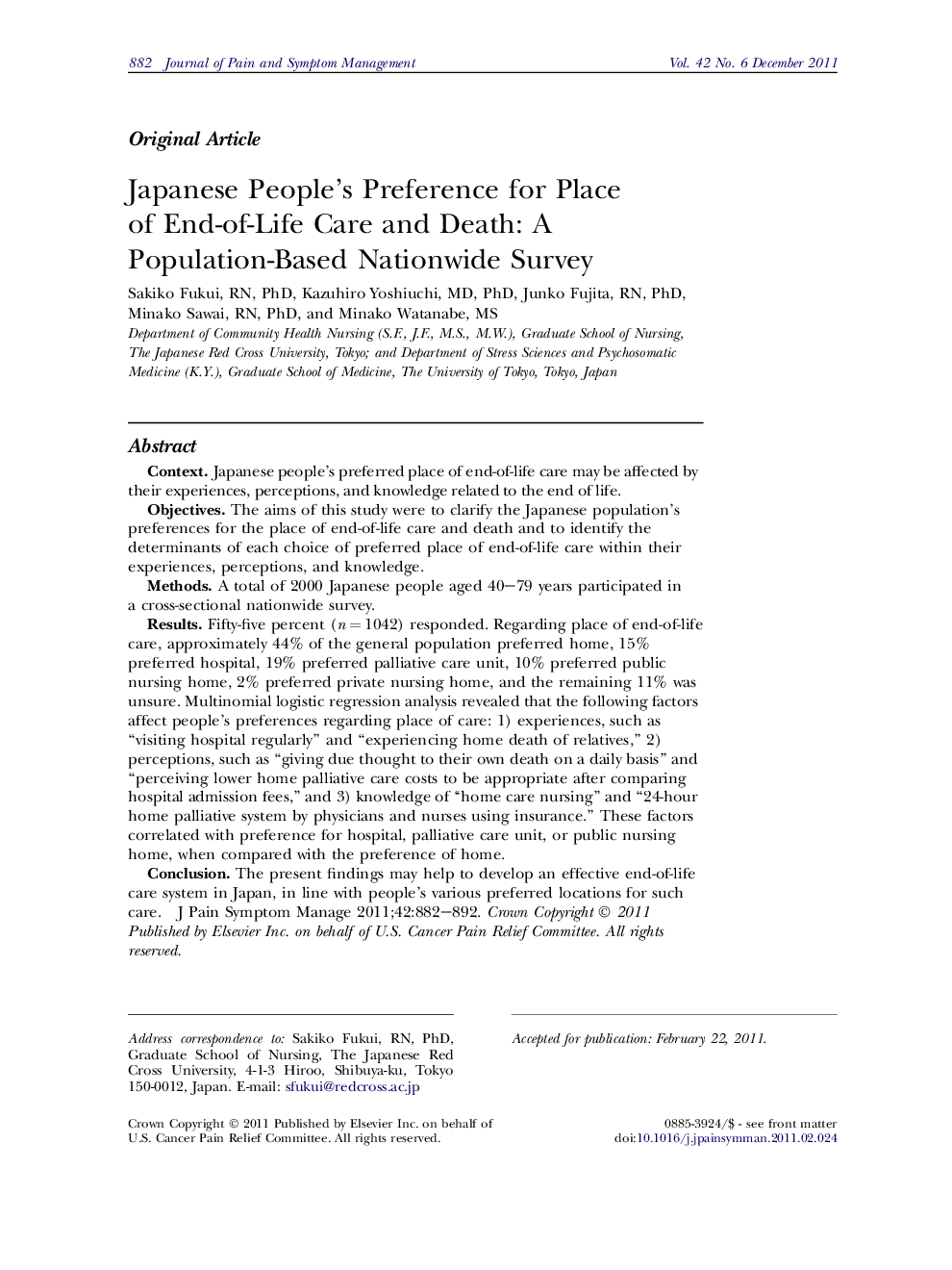| Article ID | Journal | Published Year | Pages | File Type |
|---|---|---|---|---|
| 2730167 | Journal of Pain and Symptom Management | 2011 | 11 Pages |
ContextJapanese people's preferred place of end-of-life care may be affected by their experiences, perceptions, and knowledge related to the end of life.ObjectivesThe aims of this study were to clarify the Japanese population's preferences for the place of end-of-life care and death and to identify the determinants of each choice of preferred place of end-of-life care within their experiences, perceptions, and knowledge.MethodsA total of 2000 Japanese people aged 40–79 years participated in a cross-sectional nationwide survey.ResultsFifty-five percent (n = 1042) responded. Regarding place of end-of-life care, approximately 44% of the general population preferred home, 15% preferred hospital, 19% preferred palliative care unit, 10% preferred public nursing home, 2% preferred private nursing home, and the remaining 11% was unsure. Multinomial logistic regression analysis revealed that the following factors affect people’s preferences regarding place of care: 1) experiences, such as “visiting hospital regularly” and “experiencing home death of relatives,” 2) perceptions, such as “giving due thought to their own death on a daily basis” and “perceiving lower home palliative care costs to be appropriate after comparing hospital admission fees,” and 3) knowledge of “home care nursing” and “24-hour home palliative system by physicians and nurses using insurance.” These factors correlated with preference for hospital, palliative care unit, or public nursing home, when compared with the preference of home.ConclusionThe present findings may help to develop an effective end-of-life care system in Japan, in line with people’s various preferred locations for such care.
